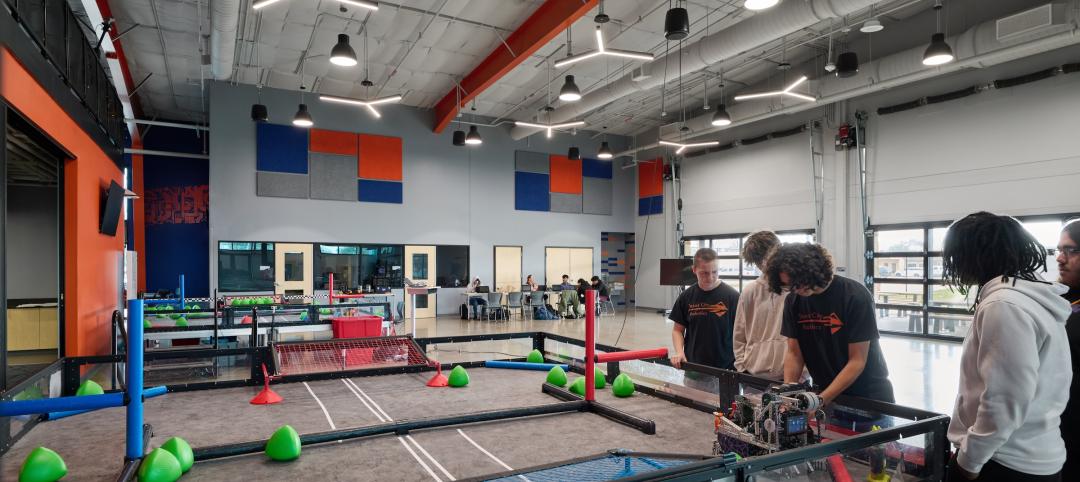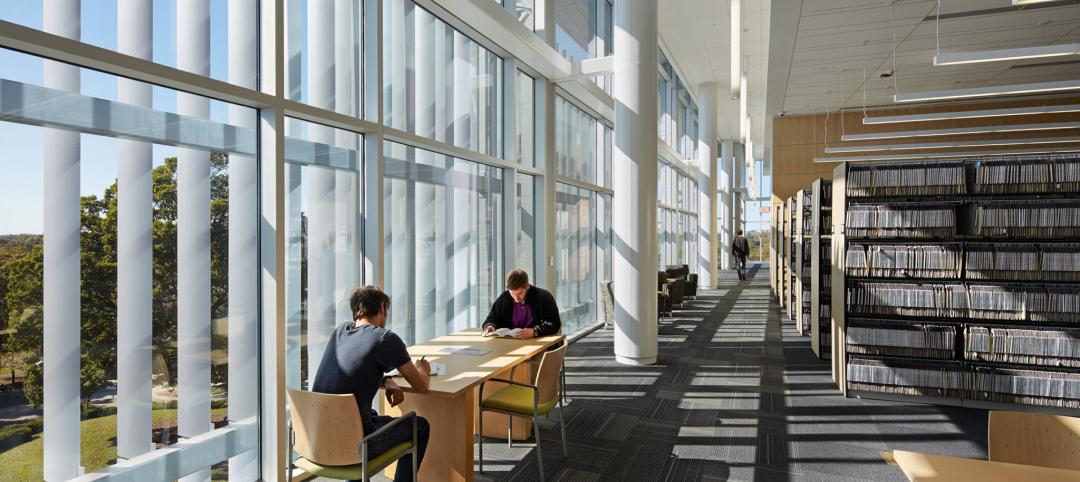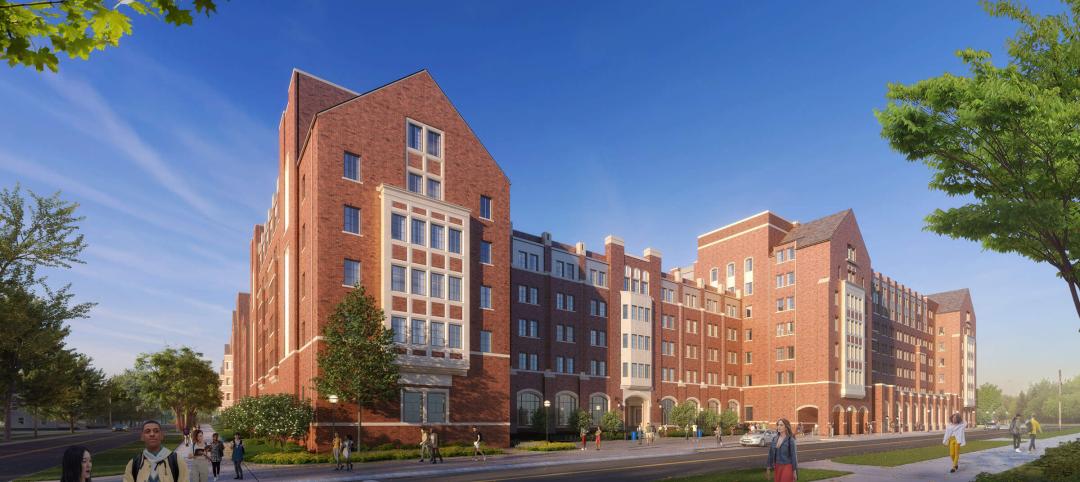Google Earth recently relaunched with a host of new features to help people explore the world in even more detail without ever having to leave the air-conditioned comforts of their homes.
One of the most fascinating new features is known as Voyager and it allows people to “experience interactive stories from around the world.” Anyone can now take guided, interactive tours of famous cities, cultural landmarks, and lost civilizations. These tours have been curated by entities such as BBC Earth, DigitalGlobe, and The Ocean Agency.
Two tours, specifically, will be of interest to anyone with a passion for architecture: Frank Gehry Buildings and Architecture by Zaha Hadid.
Frank Gehry Buildings showcases eight of the architect’s designs from around the world such as the Vitra Design Museum in Weil am Rhein, Germany, Dancing House in Prague Czech Republic, and Museum of Pop Culture in Seattle Wash. Each building comes with a short blurb explaining the building’s main function.
 Frank Gehry's Dancing House. Courtesy Google Earth.
Frank Gehry's Dancing House. Courtesy Google Earth.
Architecture by Zaha Hadid features six of the late architect’s buildings such as the London Aquatics Center, the Bergisel Ski Jump in Innsbruch Austria, and Havenhuis in Antwerp, Belgium.
As one moves from building to building, the map zooms out, moves over the globe to the next landmark’s location, and then zooms back in. Once at the site, one is free to move around and zoom in and out as one pleases, or allow Google Earth to automatically pan slowly around the building. Building’s can be viewed in either 2D or 3D. Each building can be explored in Street View, as well.
Voyager allows people to view these often times very familiar structures in a more macro context. Instead of the professional pictures everyone has come to associate with a building like Gehry’s Walt Disney Concert Hall or Hadid’s MAXXI, people can now gain a better understanding of how the buildings fit into their site and the overall city.
 Zaha Hadid's MAXXI museum. Courtesy Google Earth.
Zaha Hadid's MAXXI museum. Courtesy Google Earth.
Other current Voyager tours include Museums Around the World, Lost Civilizations from Above, Hemingway’s Hangouts, and Following Charles Dickens.
Related Stories
K-12 Schools | Aug 8, 2024
New K-12 STEM center hosts robotics learning, competitions in Houston suburb
A new K-12 STEM Center in a Houston suburb is the venue for robotics learning and competitions along with education about other STEM subjects. An unused storage building was transformed into a lively space for students to immerse themselves in STEM subjects. Located in Texas City, the ISD Marathon STEM and Robotics Center is the first of its kind in the district.
Affordable Housing | Aug 7, 2024
The future of affordable housing may be modular, AI-driven, and made of mushrooms
Demolished in 1989, The Phoenix Ironworks Steel Factory left a five-acre hole in West Oakland, Calif. After sitting vacant for nearly three decades, the site will soon become utilized again in the form of 316 affordable housing units.
Architects | Aug 5, 2024
Mastering the art of project schedule: Expert insights on design and construction
We sat down with two experts in the design field, Ron Dick (Founding Partner and Architect) and Mike Niezer (COO and Architect), to talk about everything you need to know about the entire process.
University Buildings | Aug 1, 2024
UC Riverside’s student health center provides an environment on par with major medical centers
The University of California, Riverside's new Student Health and Counseling Center (SHCC) provides a holistic approach to wellness for students throughout the UC Riverside campus. Designed by HGA and delivered through a design-build partnership with Turner Construction Company, SHCC provides healthcare offerings in an environment on par with major medical centers.
Libraries | Aug 1, 2024
How current and future trends are shaping the libraries of tomorrow
Over the last few years, public libraries have transitioned from being buildings that only store and lend books to being fully featured community centers.
MFPRO+ News | Aug 1, 2024
Canada tries massive incentive program to spur new multifamily housing construction
Canada has taken the unprecedented step of offering billions in infrastructure funds to communities in return for eliminating single-family housing zoning.
Government Buildings | Aug 1, 2024
One of the country’s first all-electric fire stations will use no outside energy sources
Charlotte, N.C.’s new Fire Station #30 will be one of the country’s first all-electric fire stations, using no outside energy sources other than diesel fuel for one or two of the fire trucks. Multiple energy sources will power the station, including solar roof panels and geothermal wells. The two-story building features three truck bays, two fire poles, dispatch area, contamination room, and gear storage.
Contractors | Aug 1, 2024
Nonresidential construction spending decreased 0.2% in June
National nonresidential construction spending declined 0.2% in June, according to an Associated Builders and Contractors analysis of data published today by the U.S. Census Bureau. On a seasonally adjusted annualized basis, nonresidential spending totaled $1.21 trillion. Nonresidential construction has expanded 5.3% from a year ago.
Student Housing | Jul 31, 2024
The University of Michigan addresses a decades-long student housing shortage with a new housing-dining facility
The University of Michigan has faced a decades-long shortage of on-campus student housing. In a couple of years, the situation should significantly improve with the addition of a new residential community on Central Campus in Ann Arbor, Mich. The University of Michigan has engaged American Campus Communities in a public-private partnership to lead the development of the environmentally sustainable living-learning student community.
MFPRO+ New Projects | Jul 31, 2024
Shipping containers converted into attractive, affordable multifamily housing in L.A.
In the Watts neighborhood in Los Angeles, a new affordable multifamily housing project using shipping containers resulted in 24 micro-units for formerly unhoused residents. The containers were acquired from a nearby port and converted into housing units at a factory.

















